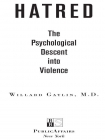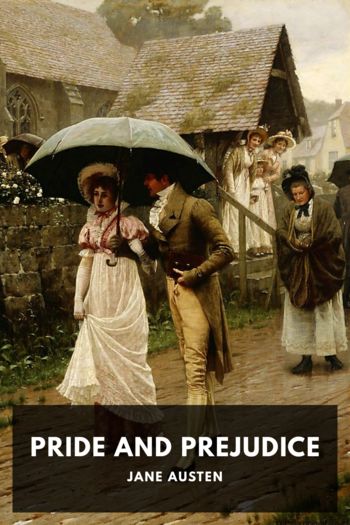Hatred by Willard Gaylin (best manga ereader txt) 📗

- Author: Willard Gaylin
Book online «Hatred by Willard Gaylin (best manga ereader txt) 📗». Author Willard Gaylin
black
due to deprivation
due to frustration
following exploitation and manipulation
versus hatred
and paranoia
and scapegoating
See also Anger
Rage Within, The
Red Badge of Courage, The
Rediscovering Love
Religion
and abuse
and anti-abortion groups
Christian
and communities of haters
and deprivation
and diversity of human behavior
Freudian analysis of
group identities in
and ideological enemies
Islamic
Jewish
motivating human behavior
and proximal identification
and psychosis
secular powers of
war for
Responsibility, personal
Ressentiment
Rhodes, Richard
Riding, Alan
Rieff, Philip
Road rage
Robins, Robert S.
Roe v. Wade
Roosevelt, Eleanor
Roosevelt, Franklin D.
Roth, Philip
Rwanda
Sachs, Nelly
Sartre, Jean-Paul
Saudi Arabia
Scapegoating
of Jews
Schadenfreude
Scheler, Max
Schizophrenia
Schreber, Daniel Paul
Sears, Erik M.
Sebold, Alice
Self-referentiality
September 11, 2001 terrorist attacks
Serbian-Croation conflict
Sexuality
and betrayal
and criminal behavior
Freud on
and jealousy
latent homo-
Shakespeare, William
Shame
Shepard, Matthew
Sibling rivalry
Single-issue activist groups
Skinner, B. F.
Slavery
Smith, Joseph
Social revolution, 1960’s and 1970’s
South Africa
South Korea
Sporting events
Stalin, Josef
Stendhal, Henri Beyle
Sudan
Suicide bombers. See also Terrorists
Suspicion
Syria
Szasz, Thomas
Technology and globalization
Territorial enemies
Terrorists
group identities
Islamic
September 11, 2001 attacks
pathological nature of
perception of normality by
and psychosis
suicide bomber
Tiger, Lionel
Titantic, The
Tolstoi, Leo
Totem and Taboo
Treatise of Human Nature, A
Tribalism
Triumph of the Therapeutic, The
Twain, Mark
Unabomber, the
Unfairness
United Nations
United States, the
envy of
middle class
military volunteers
and political correctness
relationship with Vietnam
subcultures in
Unsociability
Unsworth, Barry
Upward identification
Van Tongeren, Jack
Venezuela
Victorian age, the
Vidal Sassoon International Center for the Study of Antisemitism
Vietnam
Vietnam, Now: A Reporter Returns
Wahhabism
Walker, Nigel
Warhaft, Sidney
Weather Underground, the
Weber, Dr.
Weber, Max
Whatever Became of Sin?
Whites
and black rage
middle class
parent-child relationships among
prejudices of
working class
Williams, Patricia J.
Wistrich, Robert S.
Women
betrayal by
feminist
murder of
Woods, Tiger
Wordsworth, William
Work and frustration
World Trade Center
Worry
Yale University
Yanomamo: The Fierce People
Yugoslavia
PUBLICAFFAIRs is a publishing house founded in 1997. It is a tribute to the standards, values, and flair of three persons who have served as mentors to countless reporters, writers, editors, and book people of all kinds, including me.
I. F. STONE, proprietor of I. F. Stone’s Weekly, combined a commitment to the First Amendment with entrepreneurial zeal and reporting skill and became one of the great independent journalists in American history. At the age of eighty, Izzy published The Trial of Socrates, which was a national bestseller. He wrote the book after he taught himself ancient Greek.
BENJAMIN C. BRADLEE was for nearly thirty years the charismatic editorial leader of The Washington Post. It was Ben who gave the Post the range and courage to pursue such historic issues as Watergate. He supported his reporters with a tenacity that made them fearless, and it is no accident that so many became authors of influential, best-selling books.
ROBERT L. BERNSTEIN, the chief executive of Random House for more than a quarter century, guided one of the nation’s premier publishing houses. Bob was personally responsible for many books of political dissent and argument that challenged tyranny around the globe. He is also the founder and was the longtime chair of Human Rights Watch, one of the most respected human rights organizations in the world.
For fifty years, the banner of Public Affairs Press was carried by its owner Morris B. Schnapper, who published Gandhi, Nasser, Toynbee, Truman, and about 1,500 other authors. In 1983 Schnapper was described by The Washington Post as “a redoubtable gadfly.” His legacy will endure in the books to come.
1
Jan T. Gross, Neighbors (Princeton, N.J.: Princeton University Press, 2001).
2
See Alice Sebold, The Lovely Bones (New York: Little, Brown, 2002).
3
On September 11, 2001, Al Qaeda launched a series of suicide attacks utilizing commercial American airline flights, resulting in the destruction of the World Trade Center buildings in New York City and devastation to the Pentagon in Washington, DC. This caused the loss of thousands of lives. It will be referred to in this text as the 9/11 events, since that is how it is now publicly referred to in the United States.
4
Patricia J. Williams, “Canon to the Ordinary, Nation, November 9, 1998.
5
Karl Menninger, The Crime of Punishment (New York: Viking Press, 1968).
6
Philip Rieff, The Triumph of the Therapeutic: Uses of Faith After Freud (Chicago: University of Chicago Press, 1987).
7
“Excerpts from Cardinal Law’s Deposition in a Sex Abuse Suit,” New York Times, May 9, 2002, p. A36.
8
Willard Gaylin, The Killing of Bonnie Garland (New York: Penguin, 1983).
9
Karl Menninger, Whatever Became of Sin? (New York: Hawthorn Press, 1973).
10
All dictionary definitions, unless otherwise specified, are from The American Heritage Dictionary of the English Language (New York: Houghton Mifflin, 1992).
11
Mark Twain, The Adventures of Huckleberry Finn (New York: Signet Classic, 1952), p. 216.
12
Raul Hilberg, Perpetrators Victims Bystanders: The Jewish Catastrophe, 1933-1945 (New York: HarperPerennial, 1993), p. xi.
13
The study of emotions has been a major focus of my research and writings, e.g.:, (1) The Meaning of Despair; (2) Feelings: Our Vital Signs; (3) The Rage Within: Anger in Modern Life; and (4) Rediscovering Love.
14
Aristotle, Rhetoric, in The Basic Works of Aristotle (New York: Random House, 1941), bk. 2, chap. 4, p. 1389.
15
Gordon W. Allport, The Nature of Prejudice (Garden City, N.Y: Doubleday Anchor Book, 1958), p. 341.
16
Ibid.
17
Walter B. Cannon, Bodily Changes in Panic, Hunger, Fear and Rage (New York: Appleton-Century, 1915).
18
David Hamburg et al., “Anger and Depression in the Perspective of Behavioral Biology,” in Emotions: Their Parameters and Measurement, ed. L. Levi (New York: Raven Press, 1975), p. 29.
19
Mark 7:22, 23 AV. All quotes from the New Testament are from the King James version. All quotes from the Hebrew Bible are from Pentateuch and Haftorah, ed. Dr. J. H. Hertz (London and New York: Soncino Press, 1987).
20
. . . aside the Devil turn’d For envy, yet with jealous leer malign Ey’d them askance, and to himself thus plain’d. Sight hateful, sight tormenting! thus these two Imparadis’t in one another’s arms The happier Eden, shall enjoy their fill Of bliss on bliss, while I to Hell am thrust.
21
“Of Envy,” Francis Bacon: A Selection of His Works, ed. Sidney Warhaft (New York: Macmillan, 1965), p. 64.
22
Max Scheler, Ressentiment (New York: Schocken Books, 1972), pp. 48-50.
23
Genesis 1:27.
24
Psalm 8:4-5.
25
See the writings of Konrad Lorenz, Robert Ardrey, Lionel Tiger, Robin Fox, and Desmond Morris.
26
See “Apology for Raymond Cibonne,” in Essays of Montaigne (New York: Modern Library, 1946). The arguments about the cost of freedom, as well as the fact of freedom, have been universally addressed. For an insightful and elegant take on this theme see “The Grand Inquisitor” in Dostoyevsky’s great novel The Brothers Karamazov.
27
See Richard Rhodes’s brilliant book, Masters of Death: The SS-Einsatzgruppen and the





Comments (0)